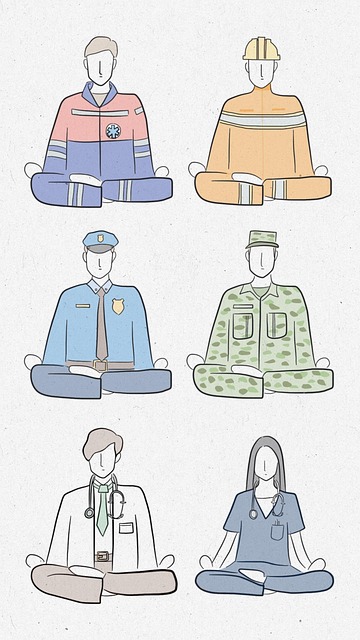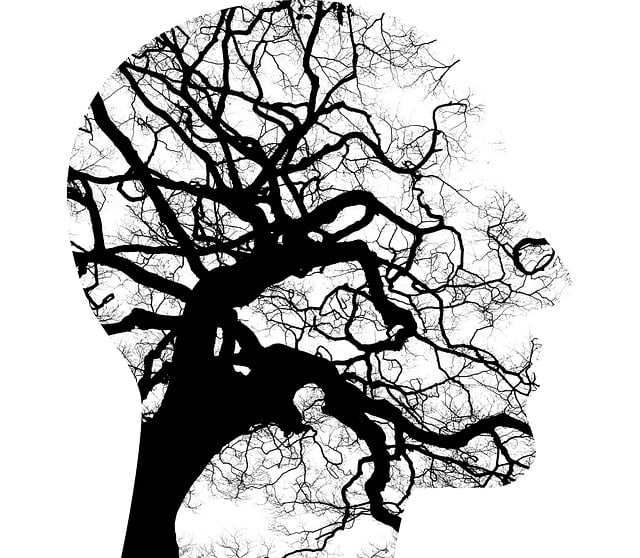Market research is crucial for successful marketing of mental wellness apps targeting Golden Abuse Survivors, focusing on understanding their specific challenges like trauma-related anxiety and depression. Effective communication strategies, policy analysis, and community awareness reduction are vital. Branding the app as a supportive companion with cultural sensitivity and emphasizing understanding can differentiate it in a competitive market. Content marketing through storytelling and user testimonials inspires hope and enhances credibility. Social media campaigns normalize mental health conversations and drive societal changes. Partnerships with advocacy groups expand reach and integrate evidence-based practices, aligning with broader Mental Health Policy Analysis goals. Targeting keywords like Golden Abuse Survivors Therapy ensures relevant content for this demographic.
In today’s digital age, mental wellness apps play a pivotal role in supporting individuals affected by golden abuse survivors therapy. This article provides a comprehensive guide on crafting an effective marketing strategy for such apps. We’ll explore market research techniques to understand the unique needs of this demographic and position your app as a compassionate resource. Through content marketing, social media campaigns, and strategic partnerships, you can build a supportive community, fostering recovery and credibility in the mental health space.
- Market Research and Understanding Your Audience: Uncovering the Needs of Golden Abuse Survivors
- Branding and Positioning: Creating a Compassionate and Trustworthy Image for Your App
- Content Marketing Strategies: Educating and Engaging with Sensitive Users Through Storytelling and Testimonials
- Social Media Campaigns: Building a Supportive Community Online for Recovery Advocacy
- Partnerships and Collaborations: Expanding Reach and Credibility within the Mental Health Space
Market Research and Understanding Your Audience: Uncovering the Needs of Golden Abuse Survivors

Market research is a crucial step in developing an effective marketing strategy for mental wellness apps targeting Golden Abuse Survivors. Understanding the unique needs and challenges faced by this demographic is essential to creating relevant and impactful content. By delving into user demographics, preferences, and pain points, you can tailor your app’s messaging and features accordingly. Many survivors struggle with trauma-related issues such as anxiety, depression, and trust difficulties, so offering therapeutic tools that address these specific needs is vital.
Effective communication strategies, including peer support networks and confidence-boosting exercises, can be powerful tools for engagement. Additionally, advocating for mental health policy analysis and awareness within communities can help reduce the stigma surrounding therapy and encourage more survivors to seek help. Tailoring your app’s marketing to address these aspects will not only attract Golden Abuse Survivors but also foster a sense of community and support.
Branding and Positioning: Creating a Compassionate and Trustworthy Image for Your App

Branding and positioning are pivotal for a mental wellness app like Golden Abuse Survivors Therapy. To stand out in a crowded market, your app’s identity must resonate with users seeking support, fostering a sense of compassion and trust. Emphasize understanding and empathy in your messaging to create a safe space for users, especially those who have experienced trauma or abuse. A compassionate brand voice can help build a loyal user base that values the app’s authenticity.
Positioning your app as a companion for inner strength development and stress management, with a focus on cultural sensitivity in mental healthcare practice, will appeal to diverse users. Highlight how your app caters to individual needs while respecting cultural nuances. This approach ensures that users from various backgrounds feel welcomed and understood, fostering deeper engagement and long-term user retention.
Content Marketing Strategies: Educating and Engaging with Sensitive Users Through Storytelling and Testimonials

Content Marketing Strategies play a pivotal role in engaging and educating users, especially those who have experienced Golden Abuse Survivors Therapy (GAST). Storytelling is a powerful tool to connect with sensitive audiences. Sharing relatable narratives of individuals who have overcome challenges similar to GAST can offer hope and inspiration. By presenting real-life examples of inner strength development and anxiety relief, the app can establish itself as a credible source of support.
Incorporating testimonials from satisfied users adds authenticity to the marketing efforts. These personal accounts not only highlight the app’s effectiveness but also foster public awareness campaigns development around mental wellness. By sharing diverse stories, the app can appeal to a broader audience and create a sense of community among users who are working towards better mental health outcomes. This strategy ensures that the content is both informative and emotionally resonant, catering to the needs of those seeking support for their GAST journey.
Social Media Campaigns: Building a Supportive Community Online for Recovery Advocacy

Social media campaigns play a pivotal role in creating a supportive online community for recovery advocacy, particularly for Golden Abuse Survivors Therapy (GAST). Platforms like Instagram, Twitter, and Facebook offer a space to connect with individuals undergoing similar emotional healing processes. By sharing inspiring stories of resilience and providing accessible self-awareness exercises, these apps foster a sense of belonging and understanding among users. Engaging content that normalizes conversations about mental health can attract those seeking support or eager to contribute to the cause.
Moreover, leveraging social media for GAST advocacy aligns with broader efforts in mental health policy analysis and advocacy. By amplifying recovery stories and sharing educational resources, these campaigns contribute to a growing movement that challenges stigma and promotes evidence-based practices. This digital engagement can lead to increased awareness, encourage community involvement, and ultimately drive positive changes in how society perceives and supports those recovering from trauma.
Partnerships and Collaborations: Expanding Reach and Credibility within the Mental Health Space

Partnerships and collaborations are powerful tools for mental wellness apps to expand their reach and establish credibility within the mental health space. By teaming up with organizations and professionals dedicated to Golden Abuse Survivors Therapy (GAST), app developers can tap into new audiences and build trust among users seeking support. These partnerships offer a unique opportunity to integrate evidence-based practices and raise awareness about various mental health issues, including burnout prevention strategies for healthcare providers and depression prevention initiatives.
Leveraging the expertise of established mental health advocacy groups and policy analysis organizations further strengthens the app’s position in this domain. Collaborative efforts can lead to comprehensive programs that address not just individual therapy but also systemic changes, aligning with broader Mental Health Policy Analysis and Advocacy goals. Such collaborations ensure that the app remains relevant, effective, and aligned with the evolving needs of users navigating complex mental health journeys.
Developing a comprehensive marketing strategy for a mental wellness app targeting Golden Abuse Survivors requires a nuanced approach. By combining market research with compassionate branding, effective content marketing, and strategic social media campaigns, you can create a supportive digital space. Additionally, partnerships with reputable organizations in the mental health field enhance credibility while reaching a broader audience. This multi-faceted strategy ensures that survivors find the help they need, fostering recovery and healing through accessible, tailored therapy solutions.














